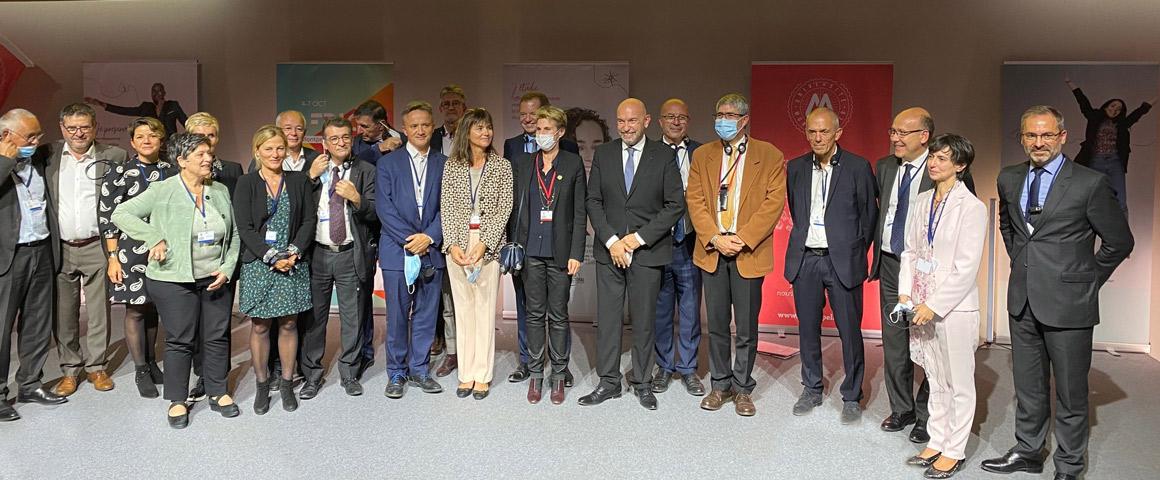Institutional news 4 February 2026
- Home
- CIRAD news
- News
- Strategic memorandum of understanding between the partners in I-Site Muse
CIRAD signs the strategic memorandum of understanding between the partners in I-Site Muse

© Cirad
On 8 October 2021, CIRAD CEO Elisabeth Claverie de Saint Martin signed the strategic memorandum of understanding between the partners in the Montpellier University of Excellence (MUSE) I-Site, alongside the University of Montpellier, the project leader, and 14 other partners.
For CIRAD, joining forces with a major university with a view to building impressive projects was an obvious choice. CIRAD has had people within MUSE since the very beginning of the project, and they will remain there, to foster partnerships and useful science.
The signing was held alongside the New Africa-France Summit in Montpellier, a major part of which was given over to higher education, research and innovation.
MUSE is keen to tackle three major challenges for the 21st century, in tune with the UN 2030 agenda:
- contributing, through research and training, to feeding a global population set to top 9 billion by 2050
- managing natural resources sustainably
- tackling chronic and emerging diseases.
It is working to build a long-term privileged partnership between the scientific world and the private sector (competitiveness clusters and businesses).
Centring on the University of Montpellier, MUSE is:
- nine national research organizations (BRGM, CEA, CIRAD, CNRS, INRAE, INRIA, INSERM, IFREMER, IRD);
- an international organization, CIHEAM-IAMM;
- two grandes écoles (Institut Agro, École nationale supérieure de chimie de Montpellier - ENSCM);
- two public teaching hospitals (CHU Montpellier, CHU Nîmes);
- a private hospital (Institut du Cancer de Montpellier - ICM).
With the support of:
- More than 150 private partners: SMEs, major groups, competitiveness clusters (Derbi, Aqua-Valley Eurobiomed, Mer Méditerranée, Optitec, Agri Sud-Ouest Innovation and Trimatec) and NGOs
- and four international partner universities (UC Davis, Heidelberg University, Wageningen University & Research, University of Barcelona).



























